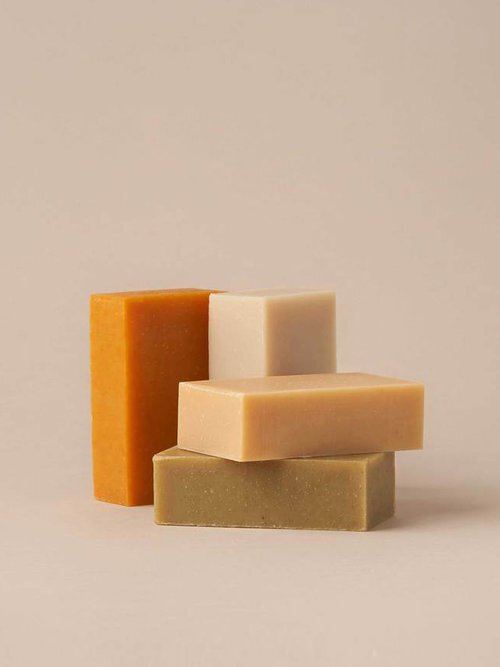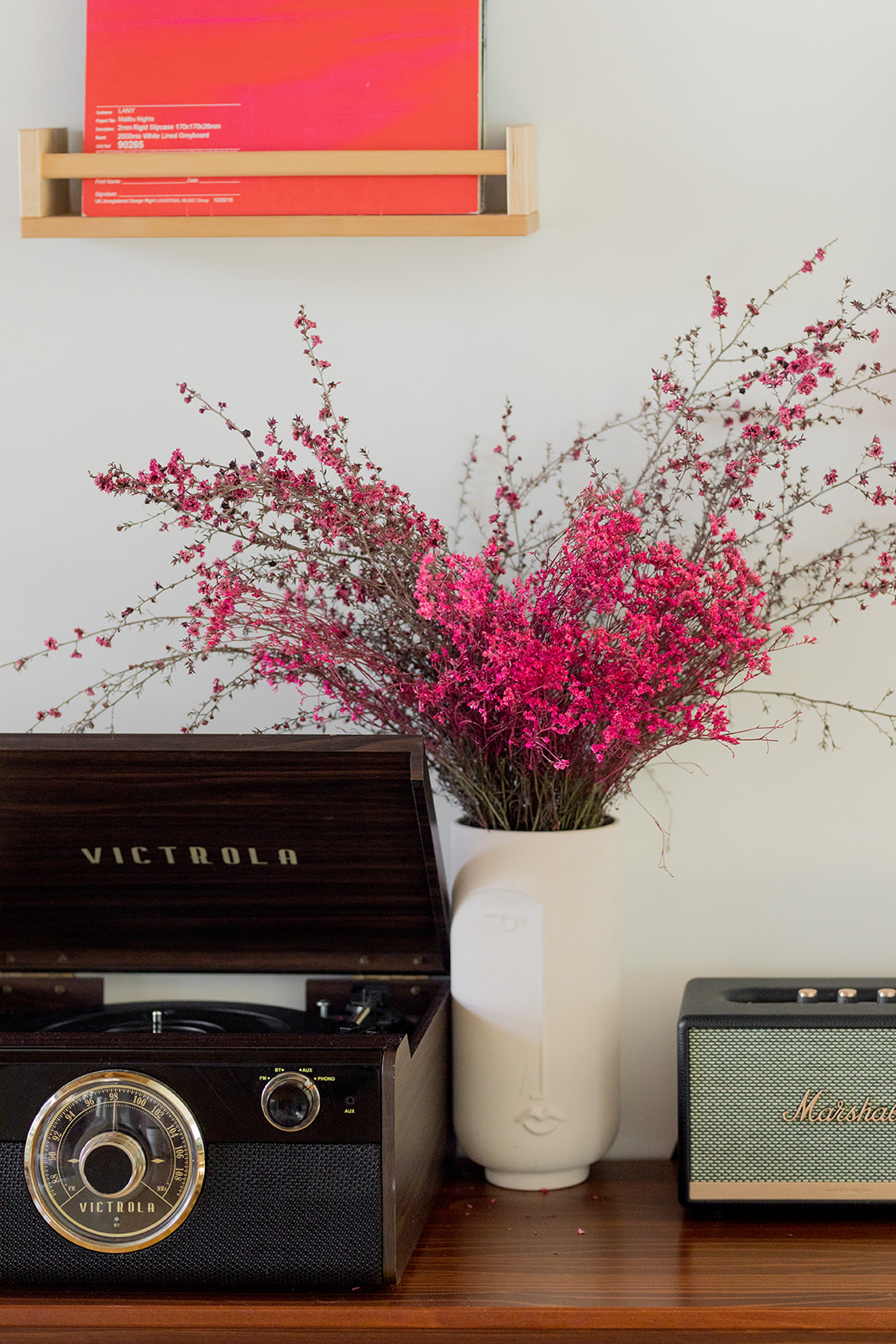
99 Zero Waste Tips We Learned From Our Grandparents
We’d visit my grandparents on the weekends, grabbing cookies from a plastic butter container they kept in the refrigerator, and playing with toys decades older than I was. They never got rid of anything—I can still see the white and pink striped polo my grandma wore from my first memories of her to my last. They never wasted anything, either. The smell of second run-through coffee permeated the house. My grandparents, like most grandparents who experienced or were raised in Depression-era families, were minimalists before I even knew what that word meant.
And for all the advancements like electric cars and solar power, creating a sustainable future depends deeply on how we preserve the lessons we’ve learned in the past. Sure, some of us have an abundance of choice, but many of us are also experiencing tighter budgets and more limited access to resources we need the most. So we’ve pulled advice from our own grandparents, and from readers of The Daily Good, to keep sharing the wealth of knowledge we inherited from our families and other members of generations that came before us.
“My grandparents, like most grandparents who experienced or were raised in Depression-era families, were minimalists before I even knew what that word meant.”
Suggestions from our readers are in quotations in the list below. Be sure to add your lessons in the comments below!
1. Reuse plastic solo cups and cutlery—our editor’s family has some solo cups they’ve used for more than 20 years.
2. Reuse plastic garden containers (and upcycle old containers into planters!) Here are more plastic free garden tips.
3. When you need a drink, don’t grab a new glass from the cupboard—keep your glass in a familiar place so you’ll use it all day.
4. Avoid plastic grocery bags in general, if possible, and opt for reusables. If you do have them, use grocery bags instead of purchasing new garbage bags.
5. Wash aluminum foil carefully to avoid tearing, and stack them in your drawer to reuse over and over.
6. Same goes for ziploc bags, especially the more expensive gallon sized ones—you can even put them in the dishwasher. When they tear, replace them with silicone reusables.
7. Find your favorite color palette for wardrobe staples and stick to it. Having a clear idea of what you feel best in means you’ll reduce unnecessary spending!
8. If you’re not too picky about your coffee, consider running water through the grounds a second time for a new batch of (weaker) coffee.
9. Jam jars can make excellent drinking cups!
10. Or, keep glass jars and lids handy for your guests to take home leftovers after a dinner party.
11. Pack your lunch—it’s so simple, but can save money, plastic packaging, and keep you healthier in the long run.
12. Rinse your rice and capture the water in a bowl. Use it for healthier hair, skin, plants, and more.
13. If you’ve mended a garment as much as you can (or if it’s stained beyond repair), cut it up to use as rags instead of paper towels.
14. “My grandmother wouldn’t let us peel vegetables with a peeler because it took away too much of the vegetable, and she’d make you peel with the blade of a knife at a 90 degree angle to preserve as much as possible. Peelers would magically go missing from our house whenever she came over. After she died, we cried when we realized the peeler never went missing.” – Mariam M
15. Can’t get rid of a stain? Dye the whole garment instead.
16. Find a new way to say “I love you” rather than cards or cheap gifts. Phone calls, spending time together, and making meals together are all meaningful ways to show you care.
17. If you’re a coffee or tea drinker, keep a large thermos of boiled water handy. This keeps it hot so you only have to boil the water once in the morning, saving time and electricity.
18. When your boiled kettle water cools, use it to water your plants or rinse your dishes.
“Find a new way to say ‘I love you’ rather than cards or cheap gifts. Phone calls, spending time together, and making meals together are all meaningful ways to show you care.”
19. Wrap gifts in fabric or newspaper (we loved getting gifts wrapped in the comics section, anyone else?).
20. “My grandmother had 18 children and I am one of more than 100 grandchildren. My grandparents were family farmers so living sustainably was a necessity, but Christmas gifts were always given to each of her children and each grandchild. These gifts were always something very thoughtful or practical—something to be used, never something that would be discarded soon after the holiday. We could look forward to practical, but fun new socks or cotton sheets or handmade pillowcases. I still have the embroidered pillowcases I got from her before she died.”- Marie B
21. Find affordable high-protein swaps for meats when prices are high. Lentils, beans, oats, and nuts can all be good options, just be sure to add a variety to your diet for complete nutrition.
22. Repair your furniture rather than replacing it—and if you can’t afford to reupholster that old sofa, perhaps consider a slipcover!
23. Melt down the ends of your old candles and combine them with a wick in a new container; you’ll have a brand new, multi-layered candle when you’re done.
24. Take your own trash to the landfill if it’s close by, that way you can be more aware of the waste you’re generating on a regular basis. (And you’ll want to waste less to avoid another garbage trip).
25. “My grandma lived on an island, in a house with no electricity (for many years) and an outdoor toilet. From her we learned to save water by collecting shower/bath water and throwing paper into a bin and not down the loo.” – Romina O. T.
26. Stay in the loop on national politics, but don’t forget to keep an eye on local policies as well. We can make a large impact on our communities by spending time on the small things.
27. Always have vinegar and baking soda on hand to combine as a quick and easy cleaning solution. (Just mix them slowly, they’ll have a bubbly reaction).
28. Try making your own laundry detergent.
29. You can even craft natural deodorant and toothpaste. Just make sure to test slowly at first, and chat with your dentist to make sure the ingredients are right for you.
30. Compost any scraps that you don’t use and give them back to the earth.
31. If a plant starts growing in your compost pile (thanks to the seeds in the leftover produce like tomatoes and pumpkins), either let it grow there or re-home it to another space in your garden. Free and easy!
32. Store leftover bacon grease for frying and baking other foods.
33. “[My grandma] would recycle gift wrap and make sure when we opened presents that we did not rip the paper, to open with care, so we could reuse again and again. Now, I save all the boxes, little bags, etc that come with purchases and reuse them as packaging for gifts.”- Romina O. T.
34. Utilize the library as much as possible, rather than buying new books. Many libraries even have a vast array of movies and shows, so you can reduce your reliance on streaming programs.
35. Wash your hair less. It’ll likely take some transition time as the oils return, but will save you on shampoo in the long run.
36. “Butter tubs and Cool-Whip containers make great storage for leftovers.” – Regina M
37. “My grandma grew up during the Depression. She used to save everything. Everything could serve more than one purpose. I remember she would rip up pieces of paper (flyers that were in the newspaper, etc.) into little squares for scrap paper.” – Jessica J
38. Re-grow your veggies like green onions and lettuce to get a little more bang for your buck. When they’ve reached the end, compost or freeze them to turn into a stock.
39. “Hang your clothes on a clothesline instead of drying them.” – Anonymous
40. Shop from the source as frequently as possible by finding farmer’s markets and CSAs in your area.
41. “If you’re hand washing dishes, only run the water when you’re rinsing.” – Anonymous
42. Add a little water to your soap dispenser to stretch it a little further—and always re-fill rather than buying a new hand soap. (We love getting Dr. Bronner’s in bulk for this). Or, skip dispensers all together and opt for bar soap in paper packaging.
43. Learn how to make your favorite sauces and dressings. Keeping ingredients on hand to make just enough for what you need is especially handy if you’re like us and frequently forget what we have at home.
44. Take care of your toys and board games, and they’ll last you a lifetime. Our editors have fond memories of playing on an Othello board from the 1970s.
45. Learn some recipes from The Great Depression, from someone who lived through it.
46. Sales and coupons will stretch your grocery budget even further, and often line up with seasonal produce availability.
47. “My Oma taught me that after a meal if we stack everything next to the fridge until the whole table is clear, then we’d only have to open the fridge once to put everything away (it stresses her out when us grandkids would come by and just peek in the fridge frequently for snacks).” – LZ
“My Oma taught me that after a meal if we stack everything next to the fridge until the whole table is clear, then we’d only have to open the fridge once to put everything away.”
—LZ
48. Set up a rain barrel and capture water for watering your plants indoors and out.
49. “The Depression-era phrase “Use it up, wear it out, or do without” was one we still heard constantly growing up. When my great-grandmother passed, the family found stacks and stacks of margarine tubs and lids in her cabinets instead of plates and bowls.” – CB
50. Learn which table scraps can be fed to your neighborhood ducks (bread is not a good option!)
51. Instead, turn your stale bread into croutons for your next salad.
52. Re-use bread bags and plastic produce bags for smaller trash bins, like in the bathroom.
53. “Never drive anywhere where you can take the train instead.” – LZ
54. Swap plastic disposable lighters for matches (or refillable lighters) to reduce your waste.
55. Use twist ties to manage an unruly cord situation. Here are even more tips!
56. Find new ways to get every last bit out of your peanut butter jar, like making overnight oats or spicy peanut dressing.
57. Have a designated space for small accessories like hair ties, bobby pins, and paperclips. This way you’ll always know where to find and return them so you don’t have to purchase more.
58. Buy a reusable razor and you only have to ever recycle the blades!
59. Similarly, invest in one nice pen and refill it rather than buying large packs from the store.
60. Take your shoes to get repaired and re-soled when they’re worn down.
61. Bring your own toiletries when traveling, or re-fill travel sized shampoos and soaps. Don’t forget to take the soap bar home with you too!
62. “My grandma used to write down the date she started her skincare products so she could plan out how many she would need for the year and only ever have what she needed.” – Molly
63. Use mesh or cloth produce bags instead of the plastic ones at the grocery store, or forgo bags all together and wash your veggies extra well. Don’t forget to store them properly for a longer shelf life.
64. When in doubt, sleep it out. One of the best remedies for feeling under the weather is simply taking time to rest and recover! (Of course, head to your doctor if you’re not feeling better soon).
65. If you don’t have a lot of outdoor space, you can grow microgreens and sprouts at home. Save money by buying seeds in bulk from a reputable seed company!
66. Junk mail makes great scrap paper—keep it on hand for when you need to make a quick note or list. You can compost certain types of it when you’re finished.
67. “My memory from my Grandad who passed when I was seven is that he would always buy me either a Kinder Egg or a KitKat so he could keep the foil to line his ash trays so he didn’t have to wash them!” – Anonymous
68. When you brush your pets, set their shedded fur outside for birds to build nests with.
69. Keep your car well-maintained. Top off the oil and air in the tires for better gas mileage and longevity for your vehicle.
70. Skip the electric kettles and stand mixers—opting for manual means fewer parts can break and it’s easier to repair. (Also, just how much fun are these hand mixers?)
71. Start and maintain a sourdough starter so you don’t have to buy yeast.
72. “[My grandparents would] repair everything in the house if it was at all possible, and they’d insist on only buying things that were designed to be repaired (they hated American washing machines where if one part broke people would get a whole new machine).” – LZ
73. Swap foods, services, and tools with your neighbors to make sure nothing goes to waste or sits unused.
74. Instead of donating kids’ clothes to a thrift store, host a family or neighborhood clothing swap. Hand-me-downs are the way to go!
75. “Freeze your Brillo pads to make them last longer and prevent rusting.” – Mary Lou G
76. If you eat meat, consider purchasing whole chickens (or even invest in a whole cow, you can split the cost with friends and family). This means you can use every part of the animal, including bones for broth, and often means you’re buying directly from the farmer so you can respect the full life cycle.
77. Create outdoor toys from found things—a tire swing, a pallet treehouse, or any number of DIY backyard games.
78. Learn how to cook dry beans so you can purchase in bulk at better prices (and reduce plastic packaging while you’re at it).
79. When you get a new shirt with buttons on it, you’ll often receive a spare matching button in case one goes missing. Instead of throwing it in the craft drawer (or worse, throwing it away), take a moment to sew it to the inside of the shirt or the tag so you’ll never lose it.
80. Avoid running a lot of electrical appliances during the day, including the oven on hot afternoons, and turn off lights when you leave the room. This will keep your bills down, and reduce strain on the power grid.
81. “My grandma taught me to not discard food so easily. She taught me to assess through look and smell if a food is still good to eat, but also, even if some foods such as fruits or charcuterie is moldy, to just discard the moldy part and eat the rest or sanitize with a bit of liquor if it’s not to be eaten straight away. It works wonders!” – Chloe F
82. When you’re finished with a tube of toothpaste or sunscreen, cut off the end of it and scoop out the remainder. There’s more left than you’d think!
83. While it’s not for the faint of heart, cloth diapers are a tried-and-true way to lower your plastic waste with a newborn. No shame if you can’t make this happen, it’s not an easy one.
84. Prioritize whole foods and cooking from scratch when you can. This saves on packaging waste, and can often be healthier than processed foods.
85. If you end up with packaging you can’t reuse, wash and sort your recyclables carefully so they can be processed properly.
86. Decorate your table with flowers from the garden or from the wild instead of buying a bouquet of imported blooms. Just be sure you have permission to pick them!
87. “Every edible part of a plant (or animal) should be used and not wasted—soups and casseroles can be made with a variety of the vegetable parts we might normally toss in the trash.” – Marie B
88. Save with credit unions and pay with cash if possible. This will keep your money invested locally, and you’ll have a clearer look at your spending.
“Every edible part of a plant (or animal) should be used and not wasted—soups and casseroles can be made with a variety of the vegetable parts we might normally toss in the trash.”
—Marie B
89. If you have an abundance of old clothing or socks, you can upcycle the scraps for your next craft project. Consider using it as stuffing for plush toys or any number of zero waste projects like reusable menstrual pads and more.
90. If you have the right tools and a penchant for DIY, you can turn any abundance from your garden into pickles or jams.
91. While you’re at it, disinfect a couple jars to ferment your own apple scrap vinegar or sauerkraut.
92. Swap out paper napkins and paper towels for their cloth counterparts—a waste win and a budget win!
93. Instead of purchasing new plants, learn to propagate the ones you already have. You can do this with wild plants, too, just make sure you have permission to clip them (or grab a start that’s already fallen).
94. “Only turn the AC on to sleep, leave the windows open during the day if it’s not too hot.”- Anonymous
95. Use your fireplace instead of your electric heat when you can do so safely! When it comes to bedtime, slip a hot water bottle in your bed to stay cozy.
96. Learn alternatives to pesticides for your garden to keep the critters out. For example, marigolds keep a multitude of pests away.
97. Learn to shop like your grandmother by prioritizing quality fabrics, stitching, and garments that can be tailored to fit for years and years.
98. Indulge in simple and inexpensive pleasures often, like people watching, phone calls with friends, and cups of tea. This helps preserve more lavish pleasures for special occasions, while still feeling nourished, celebrated, and rested.
99. Practice gratitude—the earth’s resources aren’t all infinite, and we are fortunate for any abundance that we do have. Make the most of what you have, and don’t take a single gift this life gives us for granted.
“Practice gratitude—the earth’s resources aren’t all infinite, and we are fortunate for any abundance that we do have. Make the most of what you have, and don’t take a single gift this life gives us for granted.”
Emily McGowan is the Editorial Director at The Good Trade. Born and raised in Indiana, she studied Creative Writing and Business at Indiana University. You can usually find her in her colorful Los Angeles apartment journaling, caring for her rabbits and cat, or gaming. Say hi on Instagram!




